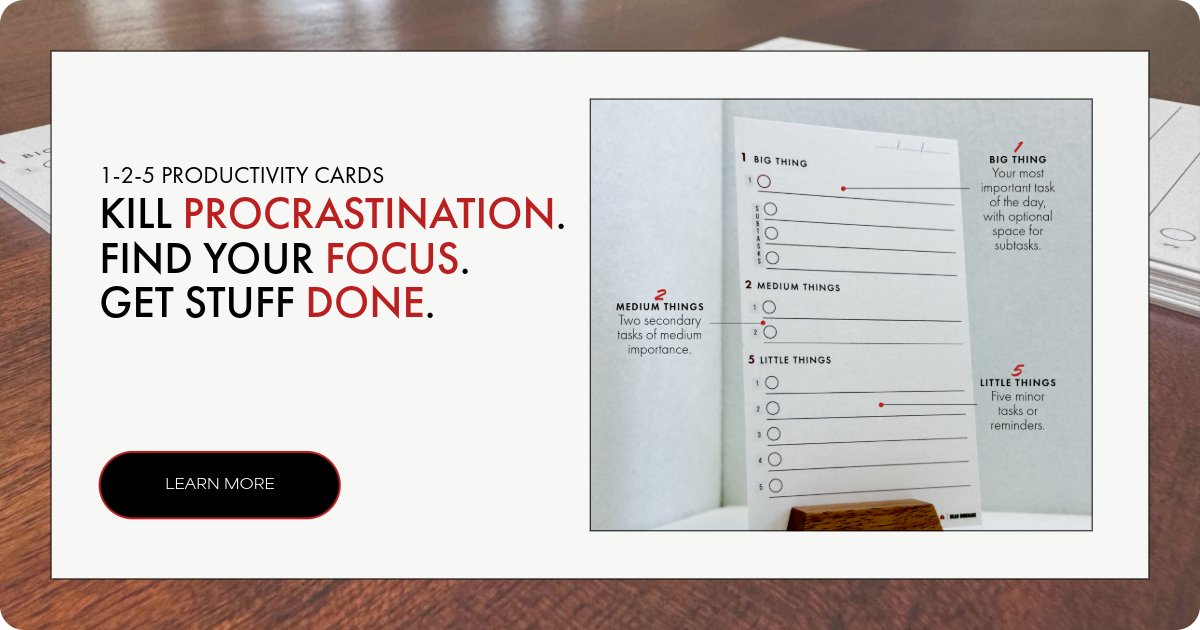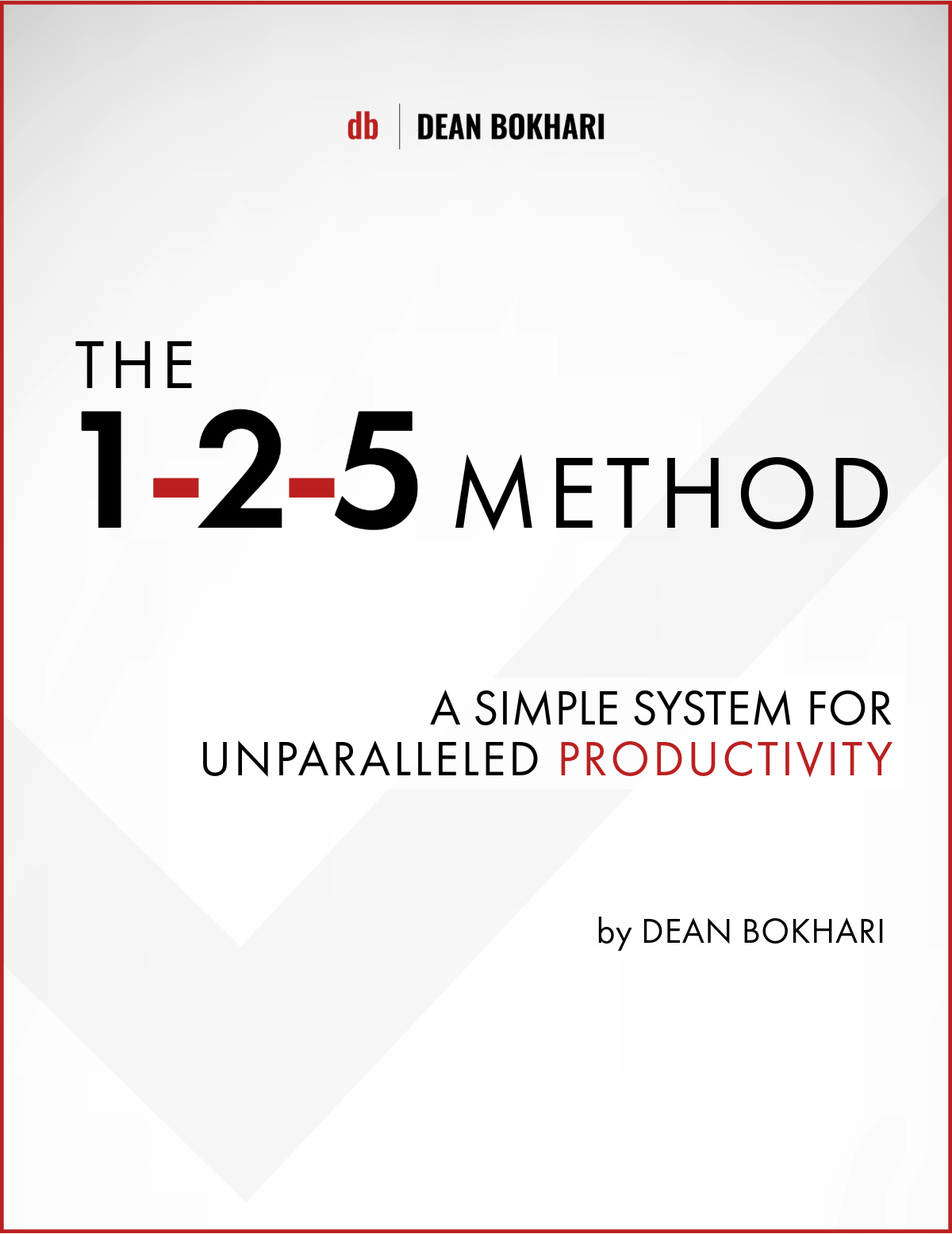Know Thy Time
“Most discussions of the executive’s task start with the advice to plan one’s work. This sounds eminently plausible. The only thing wrong with it is that it rarely works. The plans always remain on paper, always remain good intentions. They seldom turn into achievement. Effective executives, in my observation, do not start with their tasks. They start with their TIME. And they do not start out with planning. They start by finding out where their time actually goes. Then they attempt to manage their time and to cut back unproductive demands on their time. Finally they consolidate their “discretionary” time into the largest possible continuing units.” —Peter Drucker, The Effective Executive (get book summary)
In case you were wondering whether what you just read above could be broken down into a step-by-step process — it can — and according to Peter Drucker, it’s the foundation of effectiveness across every dimension of life.
Here’s your three-step process to being as effective as possible with your time:
- Recording time.
- Managing time.
- Consolidating time
Prefer audio? Listen to the podcast version below:
Recording Time
The first step toward executive effectiveness is to record the actual amount of time that you’re using on a day-to-day basis. Now, with regard to recording your time: it doesn’t really matter how you do it; what matters is that you actually do it.
These days there are even apps that allow you to log in the amount of time that you’re spending on things, which can help you stay on task and avoid doing things like checking Facebook, or constantly checking email. One of those apps many people find useful is an app called Rescue Time.
ACTIONABLE INSIGHT(S):
- Log your time: The best way to figure out where your time is actually going is to log your day to day activities in real time, over a period of 4 to 6 weeks. Doing this will give you a good idea of whether you’re focusing on things that are getting you results, or if you’re focusing your time on things that are not getting you results.
Managing Time
“‘Delegation’ as the term is customarily used, is a misunderstanding – is indeed a misdirection. But getting rid of anything that can be done by somebody else so that one does not have to delegate but can really get to one’s own work—that is a major improvement in effectiveness.”—Peter Drucker, The Effective Executive (get book summary)
Once you’ve gotten a good idea of where the majority of your time actually goes, then it’s time to identify the time wasters.
ACTIONABLE INSIGHT(S):
- Identify your time wasters by taking a look at all of the activities you regularly perform, and then asking the following question: ”What would happen if this were not done at all?” Once you’ve identified your time wasters,
- ask the next question, which is: “Which of the activities on my time log could be done by somebody else just as well, if not better?”
Consolidating Time
“Whenever I see a senior executive asserting that more than half his time is under his control and is really discretionary time which he invests and spends according to his own judgment, I am reasonably certain that he has no idea where his time goes. This is true in any organization.”—Peter Drucker, The Effective Executive (get book summary)
Now, the final and probably the most important step is to consolidate the time that you have available under your control. Time really is your scarcest resource, and unless you manage it appropriately, nothing else can be managed appropriately.
Drucker says that the reason why working late at night at home is so popular is actually its worst feature: it enables an executive to avoid tackling his time and its management during the day.
ACTIONABLE INSIGHT(S):
- Do your work early in the morning. Instead of coming home and catching up on unfinished work, Drucker recommends that you figure out a more effective way to get those things handled. One of which is to get work done early in the morning before people begin to call you or before other people wake up or in a closed office or bedroom where nobody can access you or bother you, Thus allowing you to focus intently on the work that needs to get done.
According to Drucker, one of the most effective time managers he’s ever met was the president of a big bank who he spent two years consulting for. Drucker says that he used to meet with him once a month, every month, and that the bank president was always prepared for every meeting, and there was never ever more than ONE item on their agenda. And an hour and 20 minutes into their meeting, Drucker says that the president would turn to him and say ”Mr. Drucker, I believe you’d better sum up now and outline what we should do next.”
Exactly 10 minutes later, he was out of there. Every meeting, for two straight years went on like this. And all of them were exactly an hour and a half from the moment he’d walk through the door.
Finally, Drucker asked the bank president, “Why always an hour and a half?” He answered,
“That’s easy. I have found out that my attention span is about an hour and a half. If I work on any one topic longer than this, I begin to repeat myself. At the same time, I have learned that nothing of importance can really be tackled in much less time…”
Furthermore, during the hour and a half dad Drucker was in his office every month he says that there was never a phone call, and his secretary never stuck her head in the door to announce that there was some urgent or important thing or person that needed to see him either. So, one day Drucker asks him about this too. The bank president said to him,
“My secretary has strict instructions not to put anyone through except the president of the United States and my wife. The president rarely calls– and my wife knows better. Everything else the secretary holds till I have finished. Then I have half an hour in which I return every call and make sure I get every message. I have yet to come across a crisis which could not wait 90 minutes.”
####
Dean Bokhari's Meaningful show is supported by...
- Audible Audiobooks | Thousands of titles to choose from + listen to on any device. Get your free audiobook here.
- FlashBooks Book Summaries | Top Self-Help + Business Book summaries you can read (or listen to!) in about 20 minutes per book. The best part? The book summaries are designed specifically for busy peeps on the go (like you, maybe?) Start your risk-free, 7-day trial here.
Subscribe to Dean Bokhari's Meaningful Show.
Available on major podcast platforms everywhere.
Subscribe to podcast for free on:
iTunes | Stitcher | Spotify | Overcast | Google Podcasts
LIVE LIKE YOU GIVE A DAMN,
Dean Bokhari
- If you find the podcast helpful, please rate + review it on Apple Podcasts »
- Got a Self-Improvement question you'd like me to cover? Submit it here »
"Dean Bokhari's Meaningful Show is the Self-Improvement Podcast I've been
waiting for. It's actionable, inspiring, and BS-Free." —Brett Silo
✨ New Series: How to Become an Early Riser
- Discover key methods to make early rising a habit
- How to wake up early + energized every morning
- Morning routines for health + success
Free self-development courses
👇
Tap on any of the courses below to start learning how to:
- boost your productivity (with GTD),
- get focused (with Deep Work),
- or learn the art of influencing others (with the How to Win Friends & Influence People course.)
All for free.
👇
Free life guides
👇
Best-selling Self-development courses by Dean Bokhari
Kill procrastination.
|
Get stuff done.
|
Get motivated.
|
Connect with anyone.
|
freshly pressed:
Top Audiobooks narrated by Dean Bokhari on audible | |
Book summaries
- The Power of Habit by Charles Duhigg
- 12 Rules for Life by Jordan B. Peterson
- Presence by Amy Cuddy
- Leaders Eat Last by Simon Sinek
- The ONE Thing by Gary Keller, Jay Pasan
- Deep Work by Cal Newport







































